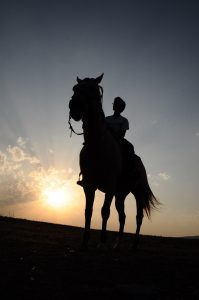 Story from one of our Retorno alumni, as told to Shoshana Schwartz:
Story from one of our Retorno alumni, as told to Shoshana Schwartz:
I don’t feel at home, anywhere. In the house of my youth I was given a place to sleep in exchange for labor well beyond my natural abilities. I was given food in exchange for being a punching bag. I was given clothing in exchange for being available for favors of all kinds. All kinds.
There were places that welcomed me, people who seemed to care. But they had their own motives, too, and none of those places were ever home.When my usefulness ended, I was welcomed as an occasional visitor, with a stopwatch marking the time allotted for each stay.
In the four walls I now call home I am a stranger. I don’t know myself, my children and husband don’t know me. I am a prisoner there, cast into a role I no longer wish to fulfill. One day, it may be a safe place for me, but now it is the place from which I most wish to escape.
So often, I want to escape from life, from pain, from myself.
And yet escape is not safe.
Or is it?
The first thing I notice when I approach Retorno’s gates are the trees. They are real, those trees. They took root in natural soil, watered by G-d Himself, and grew. And grew. Now their arms spread out, open wide to welcome me. They are sentries, telling me that this is my new home.
And for the first time, I am starting to believe. To believe that there is such a place, a place where you can stop pretending, stop doing what other people want you to do. A place where you can just be.
I cry when I think of Retorno as my home. I cry for all the lonely years when no one really wanted me as me, only for what I could give. I cry because I don’t think I deserve to have a home.
I begin to doubt. Maybe there is no such thing as home.
I slip in past the gates, and a warm breeze takes me by surprise. Aren’t mountain tops supposed to be chilly? Maybe that’s another myth of my childhood. Or maybe it’s true everywhere else, but not here. Here, it’s only warm. And quiet with a stillness that drowns out the ever-present voices in my head.
I walk up the path between the now-familiar buildings until I reach the stable, and the pungent scent of fresh hay reminds me that not everything that is good will smell familiar. Or sweet.
It’s been a very difficult day, a difficult week. I greet the horses, and the outermost layer of tension thins.
I’m jittery today, which annoys the horse and makes her try to get her own way.
I don’t let her.
We’re walking in a line, the bunch of us. We’re about to canter. I’m nervous.
I think about the beast carrying me.
It’s huge. It’s intimidating. But even though it’s so much bigger than I am, I don’t have to be afraid. Fear will only keep me from moving forward.
We canter. At first I grab the saddle horn with two hands. Then I release one hand and still manage to stay on the horse.
You don’t need to hold on, Rabbi Eckstein says, you just need balance.
I nod. Past lessons come to mind as well. Let go. Trust. Let the horse carry you.
Over his shoulder, the rabbi speaks again. You have to feel connected in order to be balanced.
My children don’t know why I go horseback riding. It’s kind of a strange thing for an Orthodox woman to do. But as I sit there in the saddle, I know why I’m there.
Because I’m an addict.
Addiction is huge. It’s intimidating. But even though it’s so much bigger than I am, I don’t have to be afraid.
I have to learn to let go. I have to trust. I have to let myself be carried. I have to feel connected in order to be balanced.
I am trying. And as long as the trees will welcome me with open arms, I will keep trying.
Fear will only keep me from moving forward.



